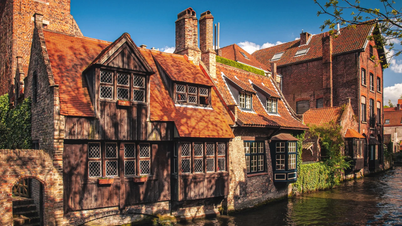German Defense Minister Boris Pistorius initially proposed the idea to attract non-Germans to join the army to address severe personnel shortages.
Minister Pistorius's idea has also received support from German lawmakers, including from the opposition Christian Democratic Union (CDU). However, questions remain about how the plan will be implemented.

Soldiers of the German army. Photo: Noah Wedel/DW
Marie-Agnes Strack-Zimmermann, a member of the Free Democratic Party (FDP) and chairwoman of the German parliament 's defense committee, said she envisioned opening up the German military to recruit soldiers from other continents.
She said initial candidates could come from the EU as well as countries such as the UK, a former EU member, as well as neutral Switzerland, but there would be scope beyond these countries.
“I think Europe needs to be looked at more deeply, specifically people who may live in European countries that are not yet part of the European Union but may be in accession negotiations,” Strack-Zimmermann said in an interview with DW.
Ms Strack-Zimmermann urged lawmakers to “think a little bolder, bigger and more European”. “We are working towards the goal of having a European army in the long term,” she said. She pointed out that the German military is working closely with its counterparts in France and the Netherlands.
Outside of Europe, Ms Strack-Zimmermann said the possibility of conscription into the German army could even be “extended to NATO”, but added that this would depend on political developments in individual member states such as the US and Canada.
A Bundeswehr spokesman said the proposal was part of an open discussion initiated by Minister Pistorius about the future of the armed forces. “Allowing EU citizens to serve in the armed forces is not a new issue,” the spokesman added.
Allowing people of other nationalities to serve in the Bundeswehr would also open up opportunities for many people born and raised in Germany but without German citizenship, Ms. Strack-Zimmermann noted.
“There are more than 10,000 Greeks living in Düsseldorf, many of them young people of the second or third generation who still have Greek passports, even though they have been in Germany for a long time,” said Ms. Strack-Zimmermann.
Mai Van (according to DW)
Source











































































































Comment (0)